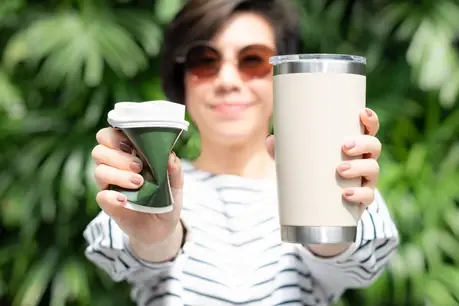Global Recycling Day: Unlock Next Gen's top tips
18 March 2023
Everyone has heard about the problems with recycling. The UK recycling rate is only at about 45%. Products take a lot of greenhouse gases to produce, invariably aren’t used for long enough and are then either shipped abroad or pollute the natural environment. For Global Recycling Day on the 18th March, this blog is taking a more positive approach and shares some handy Unlock Next Gen's top tips to become recycling gurus! UNG member Emma Sumner gives her top recycling tips for Global Recycling Day on the 18th March.
Top Tips
- Don’t wish-cycle: good intentions can backfire and a wrong item in recycling can ruin the whole batch. 84% of UK households are contaminating their recycling through the good intentions of ‘wish-cycling’. Wish-cycling is putting something in the recycling bin and hoping it will be recycled, If you aren’t sure, there are apps to check what parts of your item can be recycled. Download the app Scrapp, scan the barcode and avoid making any recycling mistakes!
- Avoid contamination: your plastics must be clean to be recycled. Whilst some recycling centres wash the waste before sending it on to specialist recycling plants, others will process recycling straight away. Don’t take the risk and make sure you give them a rinse and dry if there is leftover pasta sauce, yoghurt or any other mess left after you’ve used it!
- Lids on: keep lids on jars and bottles. This makes sure that lids don’t slip through the net in being recycled due to their small size dropping through machinery.
- Think REUSE- Before you recycle, be sure to think of how you can reuse the product before disposing of it. This ensures that you save the energy it takes to dismantle and remanufacture products. Try using refillable containers for things such as coffee, cereals, detergent and soaps!
- Cut the red tape: To best recycle cardboard remove any tape, polystyrene or plastic. This includes removing the plastic windows of letters.

The Villains
Some sneaky things can’t be recycled but masquerade as a friendly green product. Here’s a list of the baddies that need to be looked out for or taken elsewhere to be properly recycled:
1. Coffee cups - most coffee cups aren’t recyclable as they are combination of paper and plastic and need to be properly separated.
2. Plastic shopping bag and wrap - ‘soft’ plastics such as carrier bags can’t be recycled in general plastic recycling. However, some supermarkets will collect these so take them to your local store!
3. Stained packaging - usually cardboard is a great material for recycling, however when it is all filthy and stained (common with pizza boxes) it can’t be recycled so best to just chuck it.
4. Pringles cans - some packaging such as Pringles cans cannot be thrown in any recycling bin, as they are made up of a variety of plastics and cardboard known as composites. Make sure to check whether your local supermarket has a ‘bring bank’ to properly dispose of items such as these and other crisps and sweet wrapping.
5. Receipts - The UK produces 11 billion receipts every year. Half of these are paper receipts which can be recycled however ‘thermal’ receipts contain a pretty nasty toxic chemical that can’t be recycled and brought back into the chain. As it is very difficult to tell the difference between these two types, the advice is not to recycle receipts and fall into the common trap of contamination. These days it’s good practice to opt out of receipts altogether and instead ask for a digital receipt to your email.
If you’d like to know more about the team behind Unlock Next Gen, join the conversation on our podcast, or contribute to our blog, get in touch at hello@unlocknextgen.co.uk , LinkedIn – we’d love to hear from you!

